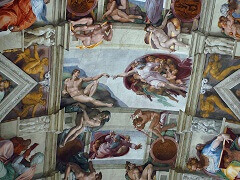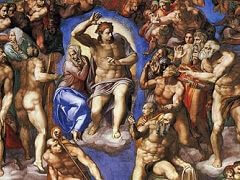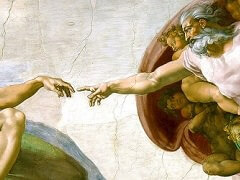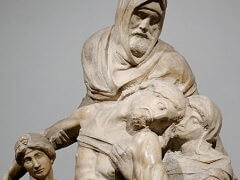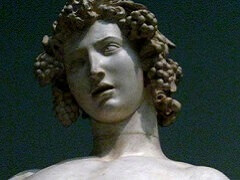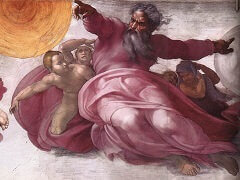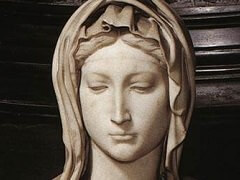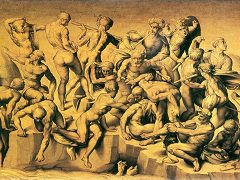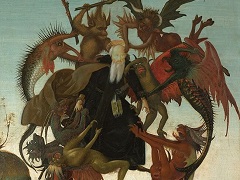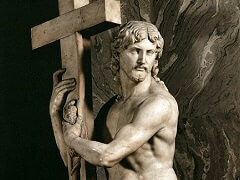Jeremiah, by Michelangelo

The aged Jeremiah, one of the most crushing images of melancholy and desolation ever painted, looks down from his throne at that of the Pope. Like Daniel, Jeremiah experienced the Passion
in his own body, for he was derided by the priests and elders, taken captive, beaten, cast into prison, from which his miraculous deliverance foretells the Resurrection. In this respect he was
also compared with St. Peter, the first Pope, and perhaps for this reason Jeremiah was placed over the throne of Pope Julius II, Peter's successor, who had been cardinal of the church of San
Pietro in Vincoli. The Creation of Plants, with its Rovere tree, and the Burning Bush of Sandro Botticelli, painted for Julius' uncle Sixtus IV, also
of the Rovere family, are respectively above and below Jeremiah, to whom the Lord foretold that He would "raise unto David a righteous Branch .... In his days shall Judah be saved and Israel shall
dwell safely." The passage given by Barbieri for Jeremiah was the Lord's question, "Jeremiah, what dost thou see ? And I said, I see a rod keeping vigil." These were prophecies of Christ and the
Crucifixion, in the same arboreal imagery universal throughout the Ceiling.
Beside him on his throne is visible a little scroll with the word "Alef" the first letter of the Hebrew alphabet, which refers to the book of Lamentations, in each of whose five books the
individual verses are lettered in Hebrew, even in the Vulgate. Lost in bitterness, his head sunk on his hand, he gazes downward, meditating, doubtless, on the destruction of Jerusalem, that
great city. Instead of putti, mourning women flank him on either side, probably personifications of the kingdoms of Israel and Judah. In Barbieri's little book may be read under Jeremiah's
picture, "Turn again, O virgin of Israel, turn again to these thy cities. . . for the Lord hath created a new thing in the earth, A woman shall compass a man." The mourning maidens may well be
called upon to turn again, for Michelangelo has averted their heads from the altar.


